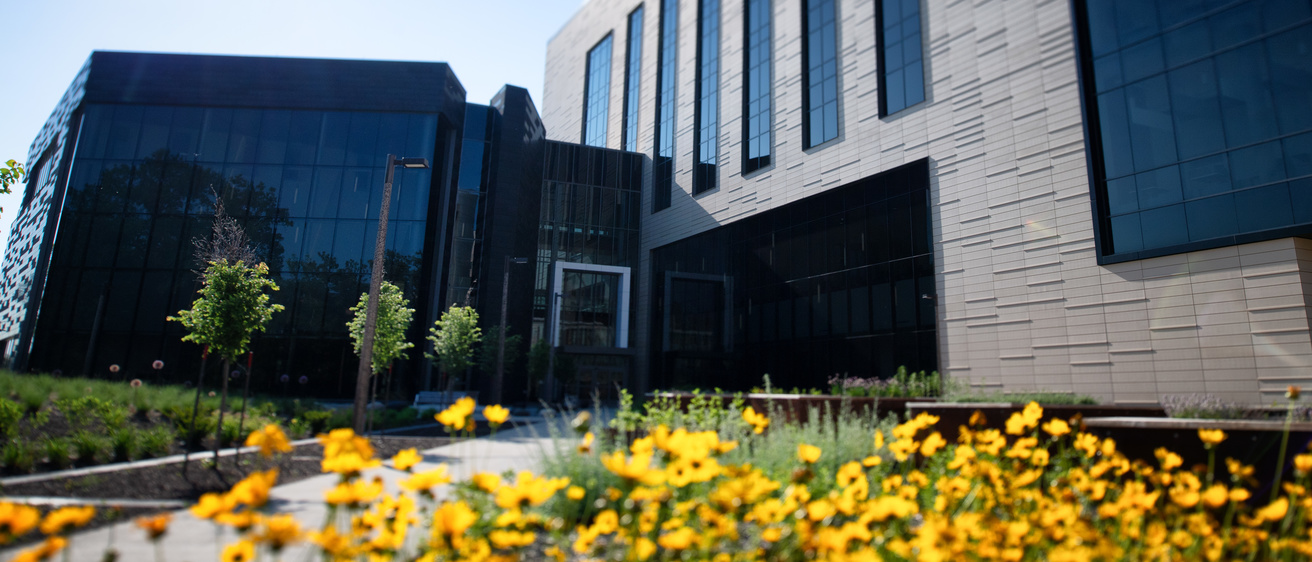The University of Iowa (UI) College of Pharmacy is proud to welcome Jared McLendon, assistant professor of Pharmaceutical Sciences and Experimental Therapeutics.
McLendon, who previously worked as a faculty member at the Carver College of Medicine, summarized what brought him to the College in one word: opportunity.
“I was at a career transition point and exploring my options for research-focused, tenure-track faculty positions within the biomedical community,” he said. “This job within the College of Pharmacy presented an ideal opportunity for me to grow my research program in an interdisciplinary department with robust intramural support.”
McLendon was also drawn to the fact that he’d have access to UI's research enterprise and focused institutions such as the Abboud Cardiovascular Research Center and the Iowa Neuroscience Institute.
“I am excited to contribute to both research and the teaching mission of the College of Pharmacy, helping to translate basic science into clinical practice in the PharmD curriculum and establish the building blocks of translational drug discovery in the PhD programs,” McLendon said.
During the course of his research career, McLendon has served as a “gene detective.”
“I like to uncover understudied genes and proteins with clear disease relevance and try to answer the five W’s (who, what, when, where, why),” he explained. “This has led me across a range of fields and allowed me to build a diverse set of skills.”
McLendon earned his doctorate from the University of South Alabama interdisciplinary biomedical sciences program. There he investigated the therapeutic potential of using small oligonucleotides to manipulate microRNA regulatory circuits through research funding from the American Heart Association, the National Institutes of Health, and contracts with several biotech companies.
“Our research group had a strong focus on smooth muscle cells and their role in various cardiovascular and pulmonary diseases, and eventually, I became interested in the mechanisms of heart failure,” McLendon shared.
After earning his doctorate in 2015, McLendon wanted to explore this interest more and started a postdoctoral fellowship in the UI Department of Internal Medicine with Ryan Boudreau, investigating microRNAs and other post-transcriptional gene regulation that occurs in heart failure.
In 2021 McLendon started a junior faculty role in the Carver College of Medicine and acquired independent research funding from the American Heart Association and the Alzheimer’s Association to investigate how Sorbs2 is involved in vascular disease and neurodegeneration, respectively.
McLendon’s ultimate goal is to understand how overall gene expression networks can be manipulated for therapeutic benefit.
As an assistant professor in the College of Pharmacy, McLendon will divide his time between research, teaching, and service. PharmD students will see him in classes starting this fall.
He aims to acquire extramural funding to support his research goals and publish the results in high-quality journals.
“This allows me the opportunity to train undergraduate, pharmacy, and PhD students in a diverse and productive environment,” McLendon said. “Together, this helps to continue to build upon the reputation of the College of Pharmacy and promote the merits of our first-class education, research, and training environment. I am dedicated to team-based, collaborative teaching and research, and hope these help to promote student recruitment and retention within pharmacy and graduate programs.”
Because he has experience collaborating with others from across the university, McLendon plans to develop these relationships further to embed the College of Pharmacy within the overall UI research network.
For his work with students specifically, McLendon hopes to help them further gain the knowledge and critical thinking skills needed to troubleshoot problems in their future careers. He also strives to make his lectures exciting and relatable.
“Science is fun!” he said. “It’s not just a subject but a method of discovery that can be applied throughout one’s life. Everyone has a spark of potential success buried inside that requires encouragement to grow. Although students can be motivated by many things, in my opinion, curiosity is the strongest motivation for independent learning.”
